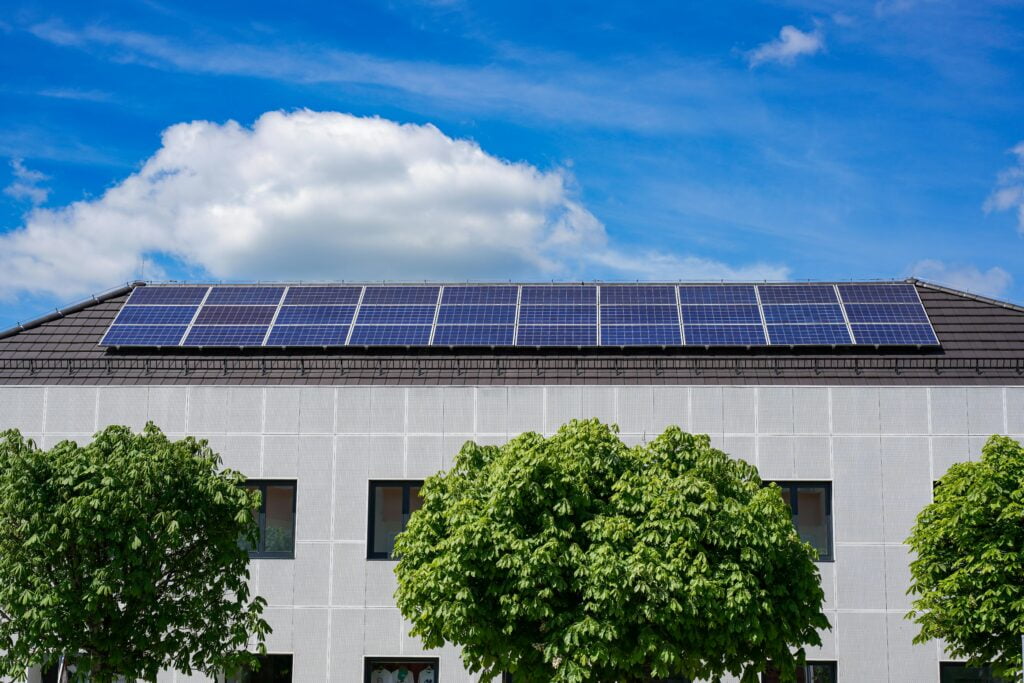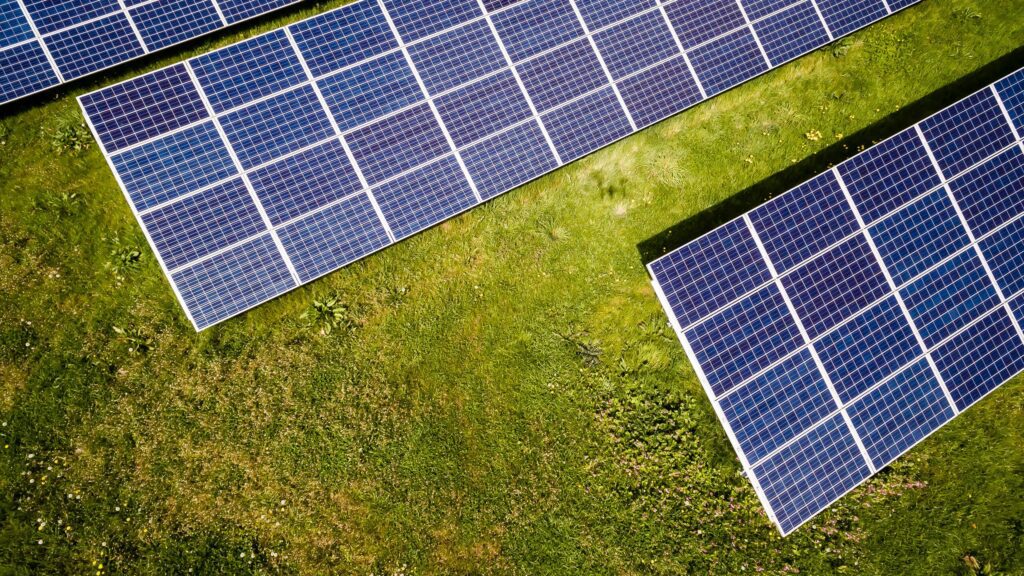Choosing the Perfect Solar Panel for Your Home in 2024: A Simple Guide”
Switching to solar energy is a smart and eco-friendly choice that can save you money and help the environment. However, choosing the right solar panel for your home can seem overwhelming with so many options available. Don’t worry! We’re here to simplify the process and guide you through the essential factors to consider when selecting the perfect solar panel for your needs.

In this easy-to-understand guide, we’ll break down the key points you need to know, from understanding different types of solar panels to considering your budget and energy needs. Whether you’re a first-time buyer or looking to upgrade your existing system, our simple tips will help you make an informed decision. Let’s get started on your journey to a more sustainable and cost-effective energy solution!
Evaluating Your Energy Needs
Before choosing a solar panel, it’s crucial to evaluate your energy needs. Start by looking at your past electricity bills to understand your average consumption. Knowing how much energy you use will help you determine the size of the solar panel system you need. For example, if your home uses a lot of electricity, you might need a larger system to meet your needs. This step is important because it ensures that you get enough solar power to cover your energy usage.
Additionally, consider any future changes that might affect your energy needs. Are you planning to buy new appliances or expand your home? These changes could increase your electricity consumption, so it’s a good idea to factor them in when evaluating your needs. By carefully assessing your current and future energy requirements, you can choose a solar panel system that will provide enough power for your home both now and in the future.
Considering Your Budget
Your budget is important when choosing the right solar panel. Solar panels come in different types and prices, so it’s necessary to find one that fits your financial situation. High-efficiency panels like monocrystalline are more expensive but save you more money in the long run because they produce more energy. If your budget is smaller, polycrystalline panels might be a better option since they balance cost and efficiency well.

When planning your budget, think about additional costs like installation, maintenance, and possible upgrades. Typically, you need at least PKR 500,000 to PKR 800,000 for a basic solar panel system, while a more advanced system can cost up to PKR 2,500,000 or more. Sometimes, spending a bit more upfront can lead to greater savings over time. Research and compare different solar panel options, looking at both initial costs and long-term benefits. By carefully considering your budget, you can find a solar panel system that meets your financial needs and provides sustainable energy for your home.
Checking Roof Suitability
Not all roofs are suitable for solar panels, so it’s important to check your roof’s condition before installation. Factors like the angle, orientation, and size of your roof play a significant role. Ideally, south-facing roofs with a pitch between 30 and 45 degrees are the best for solar panels. This position allows the panels to capture the maximum amount of sunlight throughout the day.
But that’s not all! Ensuring your roof is in good condition is crucial. Solar panels are a long-term investment, so your roof must be able to support their weight and withstand the elements. If your roof is old or damaged, it might need repairs or reinforcement before installation. Ignoring this step could lead to costly fixes down the road and could even impact the efficiency of your solar system.
Another key consideration is potential shading. Trees, buildings, or other structures that cast shadows on your roof can significantly reduce the efficiency of your solar panels. Conduct a shading analysis to determine if any obstacles will block sunlight at different times of the day and year. If there are obstructions, you might need to trim trees or choose a different spot for your panels.
Lastly, think about the size of your roof. You need enough space to install a sufficient number of panels to meet your energy needs. If your roof is too small or has an irregular shape, you might need to explore other options, such as ground-mounted solar panels.
By thoroughly checking these factors, you can ensure your roof is perfectly suited for solar panels. This attention to detail will help you maximize the benefits of your solar energy system, providing you with reliable, clean energy for years to come. Don’t skip this crucial step—it’s the foundation of a successful solar installation!
Understanding Warranties and Lifespan
When you choose solar panels, it’s crucial to understand their warranties and lifespan. Solar panels typically come with warranties lasting 20 to 25 years. A longer warranty usually means the panels are more durable and reliable. Make sure you know what the warranty covers, such as defects in materials or workmanship, and how long it lasts. This protection ensures you’re covered if there are unexpected issues with your panels.
Consider the lifespan of the panels as well. Most panels can last 25 years or more with proper care. Knowing how long they are expected to last helps you understand the long-term benefits and return on your investment in solar energy.
When comparing warranties and lifespan, choose panels from reputable manufacturers known for their quality. They often offer better warranty terms and have a reputation for reliability. Investing in reliable panels with a solid warranty gives you peace of mind and ensures your solar energy system performs well for years to come.
Comparing Efficiency and Output
When choosing solar panels, consider their efficiency—how well they convert sunlight into electricity. Monocrystalline panels are highly efficient and perform well in various conditions, including low light. Polycrystalline panels offer a cost-effective option but are slightly less efficient. Thin-film panels are flexible and lightweight but the least efficient.
Higher-efficiency panels produce more electricity in less space, which is ideal if you have limited roof space. Evaluate your energy needs and available roof area to decide which type best suits your home. While higher-efficiency panels may cost more upfront, they can save you money by generating more energy over time.
Consulting with Professionals
When you’re ready to choose solar panels, consulting with a professional installer can make a big difference. They’re here to help you navigate the process and find the best solution for your home. A professional installer will assess your home’s specific needs and recommend the right panels and setup for maximum efficiency.

They handle everything from permits to installation, ensuring your system meets all safety and performance standards. Working with a professional ensures a smooth experience and peace of mind knowing your investment is in good hands.
Let their expertise guide you toward a solar solution that’s tailored to your needs and budget, making your transition to solar energy seamless and rewarding.
Conclusion
Choosing the right solar panel for your home involves considering several factors like efficiency, budget, roof suitability, warranties, and professional guidance. By evaluating these aspects carefully, you can make an informed decision that maximizes the benefits of solar energy for your household.
Remember, higher efficiency panels may cost more upfront but can lead to greater long-term savings by generating more electricity. Consulting with a professional solar installer ensures that your system is installed correctly and efficiently, tailored to meet your specific energy needs.
Investing in solar energy not only reduces your carbon footprint but also provides sustainable and cost-effective electricity for years to come. Start your journey to a brighter, greener future with the right solar panel choice today!
Frequently Asked Questions (FAQs)
Q: How do I know if my home is suitable for solar panels?
A: Homes with south-facing roofs and minimal shading are ideal for solar panels. It’s important to have a roof that can support the weight of the panels and receive adequate sunlight throughout the day.
Q: What are the different types of solar panels available?
A: The main types are monocrystalline, polycrystalline, and thin film. Monocrystalline panels are highly efficient, polycrystalline panels offer a balance of efficiency and cost-effectiveness, while thin-film panels are flexible but less efficient.
Q: How do I choose between different solar panel types?
A: Consider factors like your budget, roof space, and desired efficiency. Higher efficiency panels may cost more initially but can save you money in the long run by generating more electricity.
Q: What warranties do solar panels typically come with?
A: Solar panels usually come with warranties ranging from 20 to 25 years, covering defects in materials or workmanship. Longer warranties often indicate higher quality and durability.
Q: How much does a solar panel system cost?
A: Costs vary depending on factors like panel type, size of the system, and installation requirements. Basic systems can start from PKR 500,000 to PKR 800,000, while more advanced setups can cost PKR 2,500,000 or more.
Q: Will solar panels reduce my electricity bills?
A: Yes, solar panels can significantly reduce or even eliminate your electricity bills by generating your own clean energy from the sun.
Q: How long do solar panels last?
A: Most solar panels have a lifespan of 25 years or more with proper maintenance. They continue to generate electricity efficiently throughout their lifespan.
Q: Do I need special maintenance for my solar panels?
A: Solar panels require minimal maintenance, such as occasional cleaning and checking for debris. A professional installer can advise on maintenance practices to ensure optimal performance.
Q: Can I install solar panels myself?
A: It’s recommended to hire a professional solar installer for safe and efficient installation. They have the expertise to handle permits, and safety requirements, and ensure your system operates at its best.
If You have any doubts or questions, Feel Free to Contact us on Our LinkedIn Page!
2 Responses